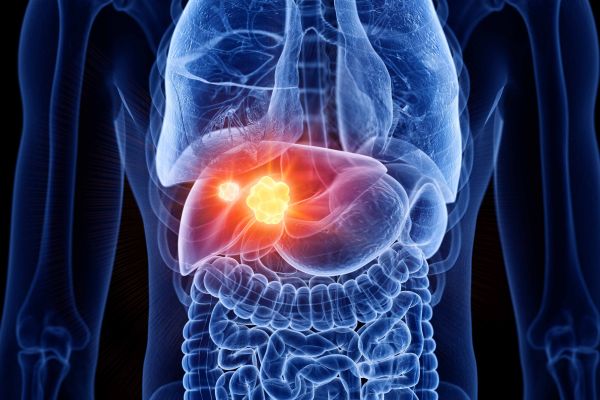The health risks associated with alcohol use are well known. A drink once in a while is fine, but excessive drinking can lead to serious health problems. Most people associate drinking with the liver — the organ that filters the blood coming from our digestive tract — but does that mean that drinking alcohol causes liver cancer?
"There is clearly a link, but it is not a direct link, as alcohol itself does not cause cancer in the liver,” says Zachary Stiles, DO, MS, surgical oncologist at Roswell Park Comprehensive Cancer Center. “Alcohol, especially long-term alcohol use, leads to chronic liver damage, including cirrhosis, or scarring of the liver. Cirrhosis is one of the primary conditions that can increase the risk or likelihood of liver cancer."
Cirrhosis occurs when the liver cells become damaged and are replaced with scar tissue. It is the leading cause of liver cancer in the United States. However, cirrhosis can be caused by factors other than alcohol use, including chronic hepatitis B or C infections and NASH (non-alcoholic steato-hepatitis), a fatty liver disease. This is also known as non-alcoholic fatty liver disease (NAFLD).
"In the United States, the most common cause of cirrhosis is Hepatitis C. However, a significant number of patients develop cirrhosis due to alcohol use alone,” says Dr. Stiles. "There are also a growing number of individuals whose liver disease is due to NASH, likely related to the increased prevalence of obesity in our country.”
Alcohol's effect on the liver
While there is a risk that alcohol abuse could eventually lead to liver cancer, it's more likely that excessive drinking will lead to liver damage, and eventually, liver failure. "There is a concern with alcohol and liver cancer, but the even greater concern should be about alcohol causing chronic liver damage,” Dr. Stiles explains. “In the general population, people with liver damage are dying of liver failure at a much higher rate than liver cancer. What’s even more problematic are the people who drink excessively and then develop liver cancer. The chronic damage caused by alcohol can, in some instances, limit the treatments available to these patients.”
To limit your risk of developing liver cirrhosis and liver cancer, as well as several other alcohol-related health issues, the CDC recommends that you drink in moderation, defined as having up to one drink per day for women and up to two drinks per day for men. One drink is defined as 12 ounces of beer (5% alcohol content), 5 ounces of wine (12% alcohol content) or 1.5 ounces or a "shot" of 80-proof (40% alcohol content) distilled spirits or liquor (for example, gin, rum, vodka or whiskey). The guidelines refer to a single day and should not be averaged out over several days.



